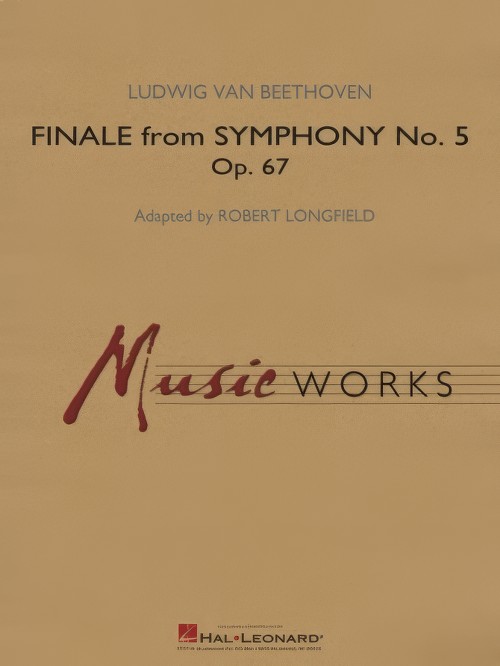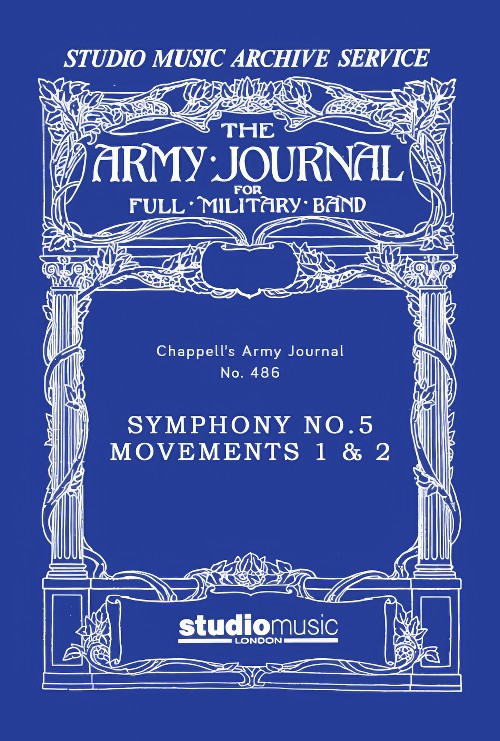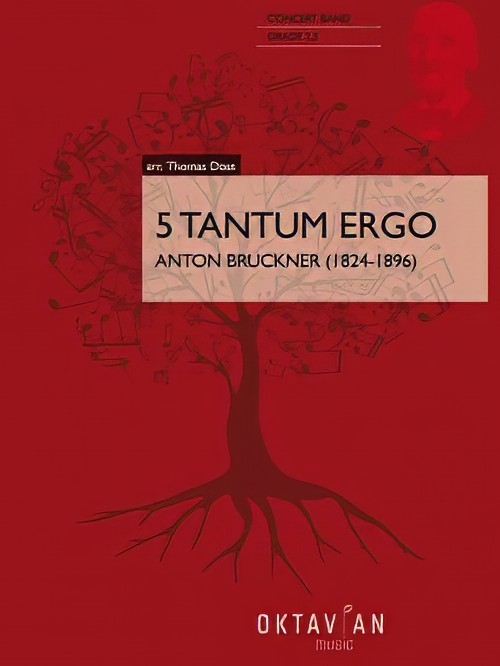Results
-
£82.50
Symphony #5 in C Minor (1st Mvt.) - Ludwig van Beethoven
Estimated dispatch 7-14 working days
-
 £79.99
£79.99Symphony No.5, Finale from (Concert Band - Score and Parts) - Beethoven, Ludwig van - Longfield, Robert
The year 2020 marks the 250th anniversary of the birth of Ludwig van Beethoven. While the first movement of his famous fifth symphony is more often performed, the majestic and triumphant finale beautifully exemplifies the craftsmanship and genius of one of the greatest composers of all time. This masterful adaptation for concert band is based on the recapitulation and coda of the final movement and includes the signature Beethoven ending completely intact! Duration: 5.00
Estimated dispatch 7-14 working days
-
 £71.50
£71.50Beethoven For Band - Ludwing Van Beethoven
This work introduces the major themes from three of the most famous and popular symphonies ever written - Beethovens Symphony No. 5, Symphony No. 7 and Symphony No. 9 - which are readily recognizable and easily learned, serving as a good introduction to some of the great masterpieces of western civilization. (2 minutes 45 seconds)
Estimated dispatch 7-14 working days
-
 £79.99
£79.99Finale from Symphony No. 5 - Ludwig van Beethoven
The year 2020 marks the 250th anniversary of the birth of Ludwig van Beethoven. While the first movement of his famous fifth symphony is more often performed, the majestic and triumphant finale beautifully exemplifies thecraftsmanship and genius of one of the greatest composers of all time. Slightly truncated in form, this masterful adaptation for concert band still retains the thematic material, power, and excitement found in the original.(MusicWorks)
Estimated dispatch 7-14 working days
-
 £54.99
£54.99Symphony No. 5 in C Minor - Ludwig van Beethoven
One of Beethoven's best known themes arranged by Scott Stanton for very small bands, and those with severe instrumentation problems. Will sound great as long has you have the four parts covered and optional guitar, percussion and keyboard parts can add to the overall effect. All students should be exposed to the great masters and this publication helps makes that possible! A real winner!
Estimated dispatch 7-14 working days
-
 £64.95
£64.95Symphony No.5 Movements 1 & 2 (Concert Band - Score and Parts) - Beethoven, Ludwig van - Godfrey, Dan
This Symphony is perhaps the most widely known of all Beethoven's works and is certainly the most characteristic expression of his genius.
Estimated dispatch 7-14 working days
-
£48.95
Beethoven Symphony No.5 Mvt.1
Estimated dispatch 7-14 working days
-
 £95.99
£95.995 Tantum Ergo (Concert Band - Score and Parts) - Bruckner, Anton - Doss, Thomas
Anton Bruckner (b. 4.9.1824, Ansfelden, d. 11.10.1896, Vienna) didn't have it easy. Throughout his life, the Austrian composer was plagued by self-doubt. Anton Bruckner came from a simple, rural background. After the death of his father, he was accepted as a choirboy at the monastery of Sankt Florian in 1837. After several years as a school assistant and his own organ and piano studies, he first worked as organist in St. Florian, then from 1855 as cathedral organist in Linz. Introduced to music theory and instrumentation by Simon Sechter and Otto Kitzler, he discovered Richard Wagner as an artistic role model, whom he admired throughout his life and also visited several times in Bayreuth. In 1868 Anton Bruckner became professor of basso continuo, counterpoint and organ at the Vienna Conservatory; ten years later court organist; and in 1891 finally honorary doctor of the University of Vienna. He was considered an important organ virtuoso of his era, but had to wait a long time for recognition as a composer. It was not until Symphony No.7 in E major, composed between 1881 and 1883, with the famous Adagio written under the effects of Wagner's death, that he achieved the recognition he had hoped for, even if he was reluctant to accept it given his inclination towards scepticism and self-criticism. Anton Bruckner was a loner who did not want to follow a particular school or doctrine. He composed numerous sacred vocal works, such as his three masses, the Missa Solemnis in B flat minor (1854), the Te Deum (1881-84) and numerous motets. As a symphonic composer, he wrote a total of nine symphonies and many symphonic studies from 1863 onwards, tending to revise completed versions several times over. Bruckner's orchestral works were long considered unplayable, but in fact were merely exceptionally bold for the tonal language of their time, uniting traditions from Beethoven through Wagner to folk music, on the threshold between late Romanticism and Modernism. Hymns for four-part mixed choir a cappella (1846, St. Florian) No. 1 in E flat major (WAB 41/3): Quite Slow No. 2 in C major (WAB 41/4): Andante No. 3 in B flat major (WAB 41/1): Slow No. 4 in A flat major (WAB 41/2): Slow Hymn for five-part (SSATB) mixed choir and organ No. 5 in D major: Solemnly They are simple works, completely subordinate to their liturgical use, which nevertheless already show numerous characteristics of personal expression. These small pieces were able to stand up to the harsh scrutiny of the mature master: in 1888, Bruckner subjected them to a revision in which he made only minor corrections.Duration: 11.00
Estimated dispatch 7-14 working days
-
£90.00
Symphony No. 5 - Ludwig van Beethoven - Jérôme Naulais
Estimated dispatch 10-14 working days
-
£48.95
Symphony No.5, Mvt.2 - Ludwig van Beethoven
Estimated dispatch 7-14 working days
